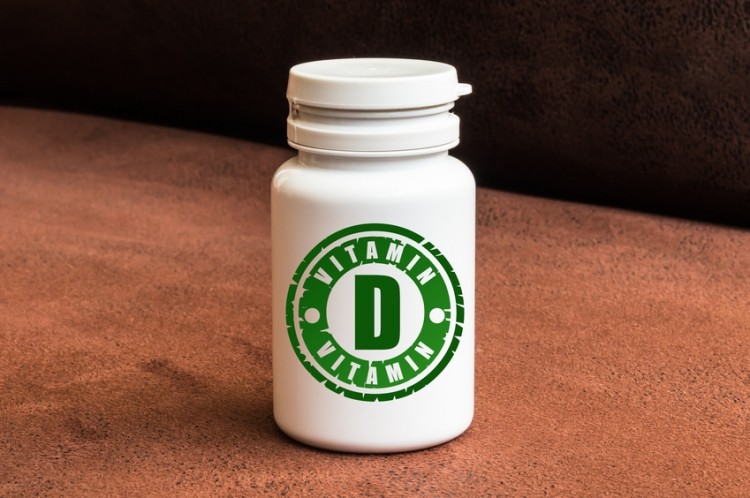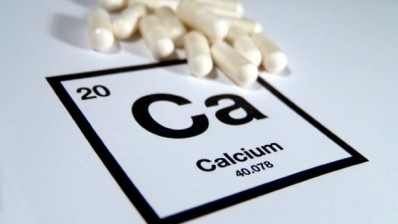Vitamin D, calcium supplementation don’t reduce cancer risk… or do they?

Women aged 55 or older receiving 2,000 IU/d of vitamin D3 and 1,500 mg/d of calcium for four years had a 30% reduction in the risk of cancer, but this was not a statistically significant difference with placebo.
Additional secondary analysis that removed the cancer that was diagnosed during the trial’s first year revealed a % statistically significant 35% reduction in cancer risk, according to findings published in JAMA.
“One explanation for lack of statistically significant differences between the treatment groups in all-type cancer incidence is that the study cohort had higher baseline serum 25(OH)D levels compared with the US population,” wrote the authors, led by Joan Lappe, PhD, RN, of the Creighton University Schools of Nursing and Medicine, Omaha.
“In the US National Health and Nutrition Examination Surveys (NHANES) from 2001 through 2006, an estimated 75% to 80% of the adult population had serum 25(OH)D level values less than 30 ng/mL […] In this cohort, the mean baseline serum 25(OH)D level was approximately 33 ng/mL.”
“Thus, if vitamin D does have any potential effect on cancer prevention, persons with higher levels of serum 25(OH)D (ie, better nutrient status) would be expected to have a lesser effect from supplementation than those with lower baseline levels, at least up to some cut-off level.”
Vitamin D and cancer
The potential anti-cancer effects of vitamin D have been reported many times over the years, although the overall data is conflicting. The link was first proposed in 1941 when Frank Apperly demonstrated a link between latitude and deaths from cancer, and suggested that sunlight gave "a relative cancer immunity".
Since then there have been numerous studies suggesting associations between vitamin D and lower risks of certain cancers.
“Promising”
Commenting on the study’s findings, Andrea Wong, PhD, vice president of scientific and regulatory affairs for the Council for Responsible Nutrition, said that the results were positive. “A one-third reduction in women is a very important research finding and warrants further exploration. The study also reinforces the safety of vitamin D and calcium supplementation: There was no increase in hypercalcemia, and no increased incidence of kidney stones,” she said.
“Supplements are not intended to prevent disease, and vitamin D and calcium are well accepted for bone health, so when you look beyond the headlines, a 30% reduction, albeit non-significant, is promising,” said Dr Wong.
“Limitations complicate the interpretation”
In an accompanying editorial, Harvard Medical School’s JoAnn Manson, MD, DrPH, Shari Bassuk, ScD, and Julie Buring, ScD, noted: “The current trial by Lappe and colleagues adds important information to the available literature. Some limitations of the trial, however, complicate its interpretation and prevent it from delivering a clear verdict on the use of supplemental vitamin or calcium for cancer prevention. With a mean baseline serum 25(OH)D of 32.8 ng/mL in the study population, most participants not only met vitamin D requirements for bone health as specified by the National Academy of Medicine1 (25[OH]D ≥ 20ng/mL), but many also had vitamin D levels in the range that has been hypothesized to provide protection against cancer, cardiovascular disease, and other nonskeletal outcomes (25[OH]D ≥30ng/mL).
“Thus, the null finding of the study may reflect that most participants were already replete in vitamin D at study enrollment. It may be that any potential cancer benefits of vitamin D supplementation are limited to or are most pronounced among individuals with relative vitamin D insufficiency, but the study was not large enough to assess whether the randomized treatment effect varied according to baseline 25(OH)D level.”
Study details
Dr Lappe and her co-workers recruited 2,303 healthy postmenopausal women living in Nebraska to participate in their four-year randomized controlled trial. The women – nearly all of them were non-Hispanic white women – were randomly assigned to receive either 2,000 IU per day of vitamin D3 and 1,500 mg per day of calcium or placebo. All participants were asked to limit their vitamin D and calcium supplementation outside of the intervention to 800 IU and 1,500 mg per day.
The data showed that a new diagnosis of cancer was confirmed in 109 participants, 45 (3.9%) in the vitamin D3 + Ca group and 64 (5.6%) in the placebo group. Incidence over four years was 0.042 in the treatment group and 0.060 in the placebo group. There was no statistically significant difference between the treatment groups in incidence of breast cancer.
“The association observed in the post hoc analysis excluding cancers that were diagnosed during year 1 may be related to the possibility that cancers diagnosed early in the study may have been present upon enrollment and that time is needed for vitamin D supplementation to increase serum 25(OH)D level and to exert a potential effect on cancer development or progression,” wrote Dr Lappe and her co-workers.
“However, this finding, as well as the post hoc observation suggesting an inverse association between serum 25(OH)D levels and cancer, should be considered only exploratory and hypothesis generating, and require assessment in further studies.”
VITAL
Additional illumination of the link between vitamin D and cancer may be provided by data from the massive VITAL (Vitamin D and Omega-3 Trial), which is a five year study involving a racially/ethnically diverse cohort of nearly 26 000 26,000 men and women across the United States.
The study is investigating the effects of vitamin D3 and marine omega-3 fatty acid (EPA + DHA) supplements in the primary prevention of cancer and cardiovascular disease.
“As ongoing large-scale trials report their findings, an improved understanding of these important relationships should come to light,” wrote Drs Manson, Bassuk, and Buring in their editorial.
Source: JAMA
2017, Volume 317, Issue 12, Pages 1234-1243. doi:10.1001/jama.2017.2115
“Effect of Vitamin D and Calcium Supplementation on Cancer Incidence in Older Women – A Randomized Clinical Trial”
Authors: J. Lappe, et al.
Editorial: JAMA
2017, Volume 317, Issue 12, Pages 1217-1218. doi:10.1001/jama.2017.2155
“Vitamin D, Calcium, and Cancer – Approaching Daylight?”
Authors: J.E. Manson et al.

















